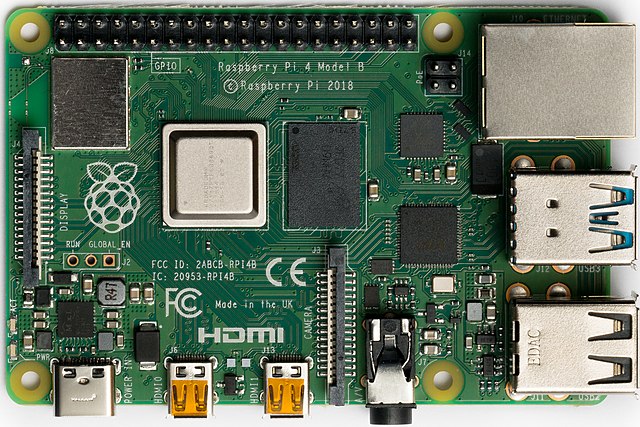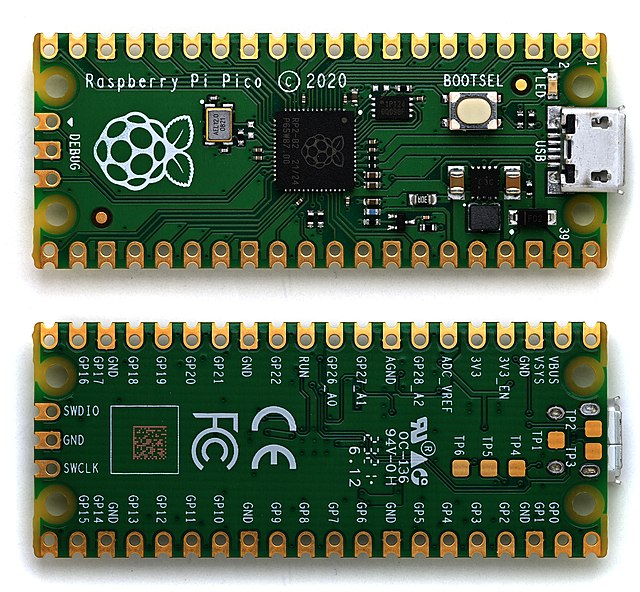Raspberry Pi is a series of small single-board computers (SBCs) developed in the United Kingdom by the Raspberry Pi Foundation in association with Broadcom. Since 2013, Raspberry Pi devices have been developed and supported by a subsidiary of the Raspberry Pi Foundation, now named Raspberry Pi Ltd. The Raspberry Pi project originally leaned toward the promotion of teaching basic computer science in schools. The original model became more popular than anticipated, selling outside its target market for diverse uses such as robotics, home and industrial automation, and by computer and electronic hobbyists, because of its low cost, modularity, open design, and its adoption of the HDMI and USB standards.
various Raspberry Pi computers
The Raspberry Pi Zero, introduced in 2015
The Raspberry Pi 4 B, introduced in 2019
The Raspberry Pi Pico, introduced in 2021
A single-board computer (SBC) is a complete computer built on a single circuit board, with microprocessor(s), memory, input/output (I/O) and other features required of a functional computer. Single-board computers are commonly made as demonstration or development systems, for educational systems, or for use as embedded computer controllers. Many types of home computers or portable computers integrate all their functions onto a single printed circuit board.
The Raspberry Pi (Model 2B shown) is a low-cost single-board computer often used to teach computer science.
An early MMD-1, the world's first true single board computer, with most chips removed
A socket 3 based 486 SBC with power supply and flatscreen







